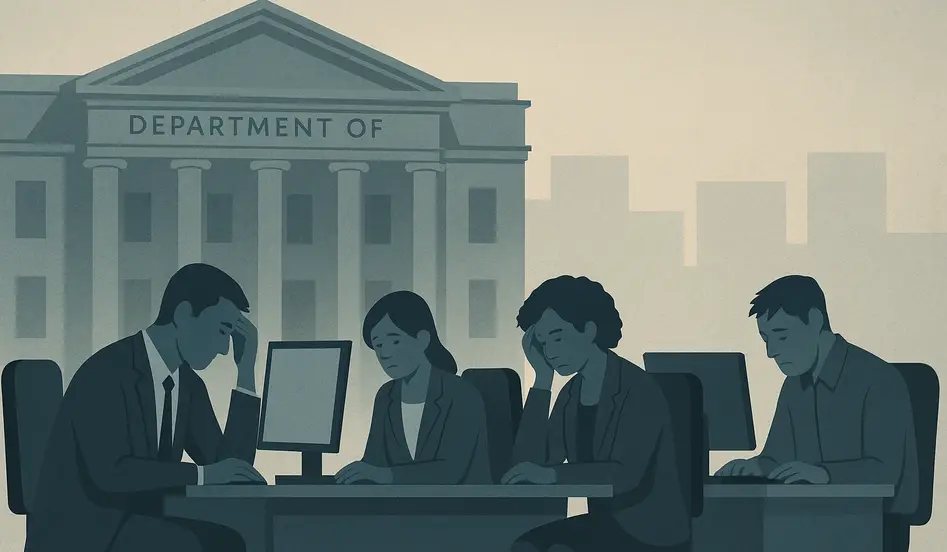Inside the U.S. Department of Labor (DOL), employees describe a climate of stress and discouragement. Nearly one-fifth of staff have resigned or taken early retirement over the past year, citing understaffing, budget pressures, and policy uncertainty.
Reports suggest investigators face mounting caseloads with fewer colleagues to share the load. Wage-and-hour audits, workplace safety inspections, and benefits compliance checks are delayed. Some staff worry openly that essential enforcement may weaken, leaving vulnerable workers without recourse.
Interviews published this week depict an atmosphere of low morale. Employees say aging infrastructure, hiring freezes, and administrative directives have left them demoralized. Fear of retaliation for speaking out adds to the strain. Critics argue that such conditions undermine public trust in an agency tasked with protecting wages, pensions, and safety standards.
Workforce Morale Is Crumbling
Low morale and organizational strain are reshaping the labor landscape. Be the employer that offers stability, purpose, and growth. Post your job on WhatJobs today and connect with motivated candidates seeking better opportunities — free for 30 days.
Post a Job Free for 30 Days →Management officials defend ongoing reforms, citing efforts to streamline processes and prioritize urgent investigations. They argue that reorganization is needed to modernize services and focus on measurable outcomes. Yet rank-and-file employees counter that constant restructuring, without enough staff or tools, is eroding capacity rather than improving it.
Labor analysts warn that morale problems can ripple outward. If enforcement weakens, dishonest employers might feel emboldened, and injured or underpaid workers could find it harder to get help. Confidence in labor statistics may also suffer if data-gathering teams remain short-handed.
The situation underscores how government performance depends not only on budgets but also on staff well-being. Experts recommend mentoring programs, flexible schedules, and steady communication from leadership as first steps toward rebuilding confidence.
FAQs
Q1: Why are Department of Labor employees leaving or retiring early?
They cite heavy workloads, budget constraints, unclear policy priorities, and limited opportunities for career growth.
Q2: How could low morale affect the agency’s mission?
Reduced staffing and weakened motivation may delay inspections, audits, and worker-protection programs.
Q3: What are officials doing in response?
Leaders say they are streamlining operations and focusing on urgent cases, but employees argue deeper support and resources are needed.
Q4: Why does morale at DOL matter for the public?
The department enforces wage laws, workplace safety, and pension protections. Staff shortages could limit these services, impacting millions of workers.
Case In Point
James, a veteran wage investigator, has spent 15 years at the Department of Labor. Over the past year, several teammates left, leaving him with nearly double his usual caseload. He now juggles overtime with mentoring new hires who lack proper training. James says he remains committed to helping workers recover stolen wages but worries burnout could push more colleagues out, further straining the agency’s mission.




